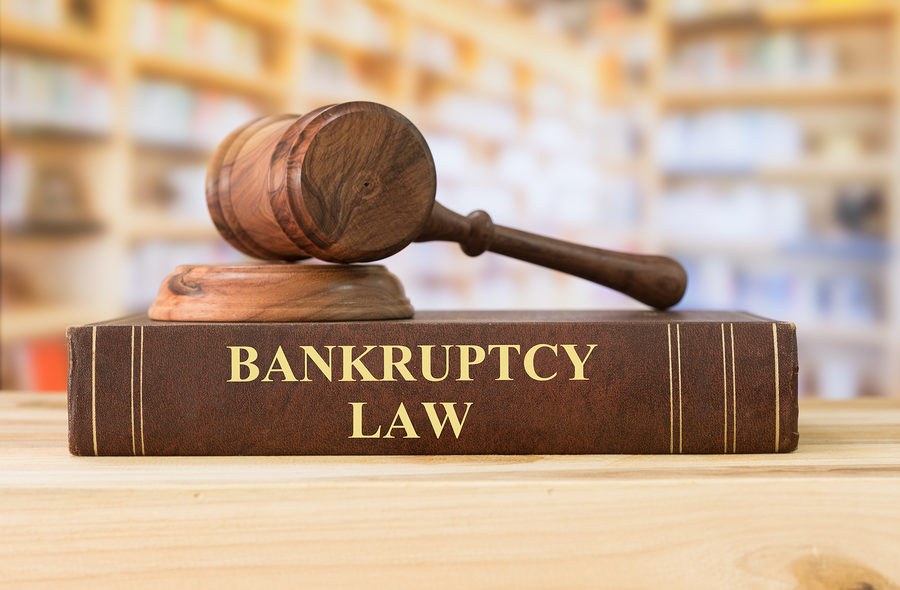When it comes to filing for bankruptcy, several different options are available, depending on the filer’s financial situation and types of debt owed. Two of the most common forms of consumer bankruptcy filings are Chapter 7 and Chapter 13.
Chapter 7 is a liquidation bankruptcy that wipes out most of your general unsecured debts such as credit cards and medical bills without the need to pay back balances through a repayment plan.
One thing to keep in mind is not all consumer debts are dischargeable, even in a Chapter 7 bankruptcy. Federal law prioritizes certain categories of debts, and these debts are not discharged for public policy reasons. These debts include child support, certain tax debts, fines or penalties imposed by a governmental entity, debts issued as part of a judgment resulting from some type of “improper” behavior, and debts incurred through fraud. While not impossible, federal student loans have traditionally been very difficult to discharge in both types of bankruptcy filings.
Aside from these categories, most debts involved in a Chapter 7 bankruptcy will be discharged at the end of the case. Essentially, a bankruptcy discharge means the consumer is no longer legally responsible for paying the debt. This discharge order is issued approximately three to four months from the date the Chapter 7 petition is filed. According to figures from the U.S. Courts website, more than 99 percent of individual filers received their Chapter 7 bankruptcy discharge, which means that this category of bankruptcy cases, if done properly, can be quite successful in eliminating debts.
To be able to proceed with a Chapter7 bankruptcy case, the person must qualify first for this type of case. The filer must show that he or she cannot pay off his or her debts through another form of bankruptcy, meaning that the person passes the means test. The bankruptcy means test determines whether a person is eligible to file for debt forgiveness through Chapter 7 bankruptcy. The test uses factors such as: income, expenses, and family size to determine who can afford to repay their debts through reorganization and who cannot. Most who take the means test, pass it, and are considered clear to file Chapter 7 bankruptcy. However, those who are ineligible for Chapter 7 have the option to file Chapter 13, which will restructure and reorganize debts.
Before filing, the person must also complete a court-required financial management class, filing a certificate of completion with the court before they will approve the bankruptcy discharge.
Someone cannot pursue a Chapter 7 bankruptcy if he or she has filed for Chapter 7 and has received a successful discharge within eight years before filing again or if the person has filed for Chapter 13 bankruptcy in the last six years, unless all of his or her unsecured debts were paid in full during the Chapter 13 repayment period or at least 70 percent of those debts were paid under “best-effort” conditions. Additionally, a person cannot refile within 180 days of dismissing a previously filed petition due to creditor objections or court dismissal.
At the time of filing, an automatic stay is issued which puts an immediate halt to all collection proceedings against the filer. Following the initiation of the case, the bankruptcy court will set a meeting called the “341 meeting,” where the person’s creditors will have a chance to file a claim and to object to a discharge, if they wish to object. The filer will be put under oath and must respond to questions from creditors regarding his or her debts and income. The filer will also need to provide documentation to back this testimony by providing it to the bankruptcy trustee.
Many people fear filing for bankruptcy because they do not want to lose any property they have. If you are filing for Chapter 7 bankruptcy in Florida, you can use Florida bankruptcy exemptions to protect your property. In addition, residents are provided unlimited exemptions for homestead, annuities, and the cash surrender value of a life insurance policy. Florida has one of the most generous homestead exemptions in the country. Any debts that are not reaffirmed by the filer and kept or are not paid from the proceeds of the bankruptcy estate will be discharged, thus giving the filer a “fresh financial start.”
Please click here to read more.
If you have questions on this topic or are in financial crisis and considering filing for bankruptcy, contact an experienced Miami bankruptcy attorney who can advise you of all of your options. As an experienced CPA as well as a proven bankruptcy lawyer, Timothy Kingcade knows how to help clients take full advantage of the bankruptcy laws to protect their assets and get successful results. Since 1996 Kingcade Garcia McMaken has been helping people from all walks of life build a better tomorrow. Our attorneys’ help thousands of people every year take advantage of their rights under bankruptcy protection to restart, rebuild and recover. The day you hire our firm, we will contact your creditors to stop the harassment. You can also find useful consumer information on the Kingcade Garcia McMaken website at www.miamibankruptcy.com.


